Question
Our son Jack, who is turning 6 next week, and has Aspergers is not coming to terms that mum and dad will be going away for 4 days for a holiday in January (20th to be exact). It is my and my husband 1st year anniversary (strange as it seems after being together for almost 12 years). It is important for us as a couple to have this time away, and a friend in our compound has agreed to look after Jack. She also has a boy who is 6 1/2 years old. I have two other sons who will be going to other houses in the compound whilst we are away. The kids will still be close to each other but not in each other’s pockets.
I tried to explain to Jack via using a calendar of the days we will be away, but he had a complete meltdown. Not sure if this is just a manipulation game but I will admit I haven't left him with anyone for a very long time. Their father leaves a lot for travel for work but mum is always home.
Are you able to provide me with a strategy to discuss with him of our leave away? Should I not go? My only concern with this is that then I will never be able to have time away with my husband and sometimes things get strained as it is.
Is the change too much? We do have a nanny, but not to sound rude, the nannies here in Ghana are not a western nanny and she simply can't cope with Jack - let alone with 3 boys by herself. I can have the option of the nanny staying in the house here with the three kids, but last time we were out and Jack vomited, she left him in his vomit (so not exactly reliable).
Has any other parents asked you this question before? I will admit to you our relationship is not going the greatest so I am hoping that having time away from the kids may help.
Answer
Separation anxiety is a problem for many kids, but with an Aspergers (high functioning autistic) youngster, the situation is even more serious due to sensory issues, poor social skills, and the need for structure and routine.
Separation anxiety is defined as excessive anxiety about becoming separated from mother, father, and any siblings that might be in the home. Aspergers kids experiencing separation anxiety often exhibit generalized fear, anxiety over the possibility of death, and recurrent nightmares. Unlike the occasional worries that kids may feel at times of separation, separation anxiety causes fears that may limit a youngster’s ability to engage in ordinary life.
Normal separation anxiety and “Separation Anxiety Disorder” share many of the same symptoms, so it can be confusing to try to figure out if your youngster just needs time and understanding—or has a more serious problem. The main differences between healthy separation anxiety and a disorder are the intensity of your youngster’s fears, and whether these fears keep him from normal activities. Kids with separation anxiety disorder may become agitated at just the thought of being away from his parents, and may complain of sickness to avoid playing with friends or attending school. When symptoms are extreme enough, these anxieties can add up to a disorder.
Kids with Separation Anxiety Disorder feel constantly worried or fearful about separation. Many kids are overwhelmed with one or more of the following:
• Kids with anxiety disorder may fear that once separated from mom or dad, something will happen to keep the separation (e.g., they may worry about being kidnapped or getting lost).
• Kids with separation problems often have scary dreams about their fears.
• The most common fear a youngster with separation anxiety disorder experiences is the worry that harm will come to his mother or father in the youngster's absence (e.g., the youngster may constantly worry about a parent becoming sick or getting hurt).
Separation Anxiety Disorder can get in the way of a youngster’s normal activities. Kids with this disorder often:
• Shadow you around the house or cling to your arm or leg if you attempt to step out.
• Complain they feel ill.
• Anxiety may make these kids insomniacs, either because of the fear of being alone or due to nightmares about separation.
• A youngster with separation anxiety disorder may have an unreasonable fear of school, and will do almost anything to stay home.
Here are some tips to help your Aspergers youngster deal with his separation anxiety:
• Allow your youngster to call once each evening to reassure him that you will be home soon.
• Anticipate separation difficulty. Be ready for transition points that can cause anxiety for your youngster. If your youngster separates from one parent more easily than the other, have that parent handle the separation.
• Develop a “goodbye” ritual. Rituals are reassuring and can be as simple as a special wave through the window or a goodbye kiss.
• Educate yourself about separation anxiety. If you learn about how your youngster experiences this condition, you can more easily sympathize with his struggles.
• Give your child a calendar with the days that you will be gone circled. Call daily and have him put a big ‘X’ inside the circle that corresponds to the current date, bringing him that much closer to your return home.
• Have a consistent primary caregiver. If you hire a caregiver, try to stick with this one person for as long as possible.
• Help him practice relaxation. Your youngster can control stress levels with relaxation techniques like yoga, deep breathing, or meditation.
• If possible, try to arrange it so that the anxious youngster and his brother or sister stays with the same caretaker while you’re gone. In this way, the anxious youngster will still be in the presence of a family member throughout your absence.
• Keep a sense of humor. The act of laughing helps the body fight stress in a number of ways.
• Keep calm during separation. If your youngster sees that you can stay cool, he is more likely to be calm, too.
• Keep familiar surroundings when possible. Have the caretaker come to your house.
• Leave him with a picture of you and a personal item of yours before you leave.
• Leave without fanfare. Tell your youngster you are leaving and that you will return, then go—don’t stall.
• Listen to and respect your youngster’s feelings. For a youngster who might already feel isolated by his anxiety, the experience of being listened to can have a powerful helping effect.
• Make new surroundings familiar. When your youngster is away from home, let him take a familiar object with him.
• Make sure he gets enough sleep. Feeling tired will only increase stress, causing him to think irrationally or foggily.
• Make sure your youngster eats right. A well-nourished body is better prepared to cope with stress, so be mindful of what he eats.
• Make sure your youngster exercises regularly. Physical activity plays a key role in reducing and preventing the effects of stress.
• Minimize scary television/movies. Your youngster is less likely to be fearful if the shows you watch are not frightening.
• Offer choices. If your youngster is given a choice or some element of control in an activity or interaction with an adult, he may feel more safe and comfortable.
• Practice separation. Leave your youngster with a caregiver for brief periods and short distances at first.
• Praise your youngster’s efforts. Use the smallest of accomplishments—going to bed without a fuss, a good report from school—as reason to give your youngster positive reinforcement.
• Provide a consistent pattern for the day. Don’t underestimate the importance of predictability for kids with separation problems. If your family’s schedule is going to change, discuss it ahead of time with your youngster.
• Reassure your youngster that you will return and at what day/time.
• Schedule the separation in the morning right after breakfast. Kids are more able to deal with separation anxiety if they are rested and fed.
• Set limits. Let your youngster know that although you understand his feelings, there are rules in your household that need to be followed. And one of the rules is “mommy and daddy go on trips together sometimes.”
• Spend a considerable period of time with your youngster before you leave and upon your return.
• Support the youngster's participation in activities. Encourage your youngster to participate in healthy social and physical activities while you’re gone.
• Talk about the issue. It’s healthier for kids to talk about their feelings—they don’t benefit from “not thinking about it.” Be empathetic, but also remind the youngster—gently—that he survived the last separation.
• Try not to give in. Reassure your youngster that he will be just fine—setting limits will help the adjustment to separation.
If you see any of the following “red flags” and your interventions don’t seem to be enough, it may be necessary to get a professional to diagnose and help your youngster:
- Age-inappropriate clinginess or tantrums
- Constant complaints of physical sickness
- Excessive fear of leaving the house
- Preoccupation with intense fear or guilt
- Refusing to go to school for weeks
- Withdrawal from friends, family, or peers
Therapists can address physical symptoms, identify anxious thoughts, help your youngster develop coping strategies, and foster problem solving. Professional treatment for separation anxiety disorder may include:
• Counseling for the family. Family counseling can help your youngster counteract the thoughts that fuel his or her anxiety, while you as the parent can help your youngster learn coping skills.
• Medication. Medications may be used to treat severe cases of separation anxiety disorder. It should be used only in conjunction with other therapy.
• Play therapy. The therapeutic use of play is a common and effective way to get kids talking about their feelings.
• Talk therapy. Talk therapy provides a safe place for your youngster to express his or her feelings. Having someone to listen empathetically and guide your youngster toward understanding his or her anxiety can be powerful treatment.
More resources for parents of children and teens with High-Functioning Autism and Asperger's:
==> How To Prevent Meltdowns and Tantrums In Children With High-Functioning Autism and Asperger's
==> Parenting System that Significantly Reduces Defiant Behavior in Teens with Aspergers and High-Functioning Autism
==> Launching Adult Children with Asperger's and High-Functioning Autism: Guide for Parents Who Want to Promote Self-Reliance
==> Teaching Social Skills and Emotion Management to Children and Teens with Asperger's and High-Functioning Autism
==> Parenting Children and Teens with High-Functioning Autism: Comprehensive Handbook
==> Unraveling The Mystery Behind Asperger's and High-Functioning Autism: Audio Book
==> Parenting System that Reduces Problematic Behavior in Children with Asperger's and High-Functioning Autism
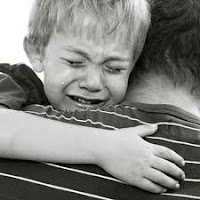
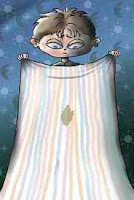
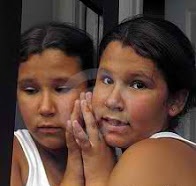
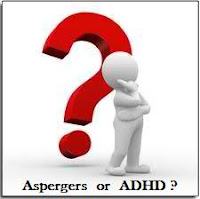
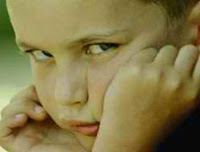


.jpg)


